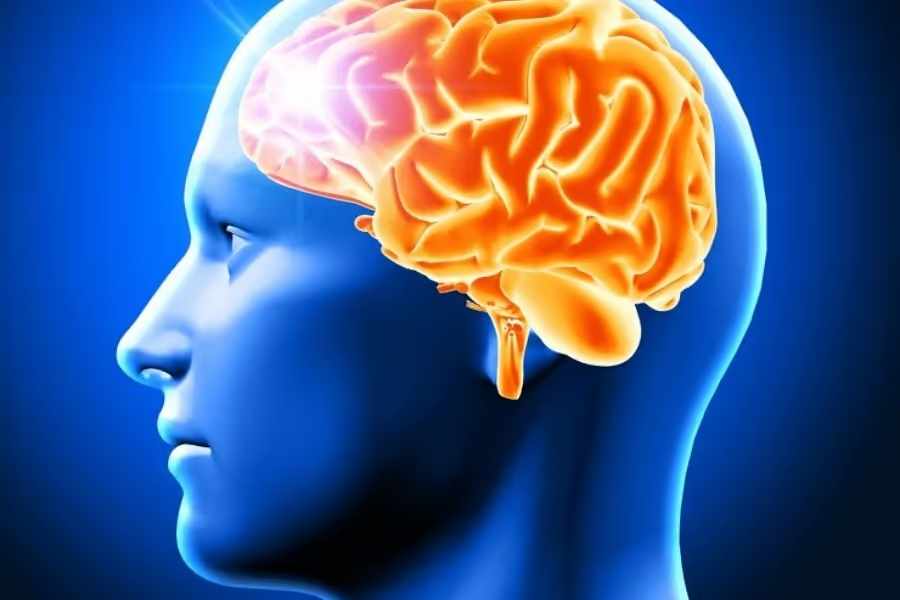Aphasia
Overview of Aphasia

Aphasia is a neurological condition that affects the brain's language centers, often located on the left side.
It can arise abruptly from a stroke or head injury or develop gradually due to a brain tumor or progressive disorder.
People with aphasia struggle with language expression, comprehension, reading, and writing. Often, it accompanies other speech disorders like dysarthria or apraxia of speech. With various types of aphasia, communication abilities are severely hampered, impacting quality of life.
Despite its challenges, therapies and interventions can help mitigate its effects, fostering better communication and enhancing overall well-being for individuals affected by aphasia.
Aphasia Symptoms
• Expressive Aphasia: Impedes speech production, leading to word-finding difficulties and incoherent sentences.
• Receptive Aphasia: Hampers understanding of spoken or written language, impacting comprehension of conversations.
• Anomia: Involves difficulty recalling specific words, hindering effective communication.
• Limited Vocabulary: Characterized by a reduced range of words available for expression.
• Reading/Writing Problems: Manifest as challenges in understanding written text or forming coherent written sentences.
• Repetition Issues: Result in inaccuracies when repeating words or sentences, further complicating communication efforts.
Causes & Risks
• Stroke: The leading cause of aphasia is a stroke, which occurs when a blood clot or a leaking or burst vessel cuts off blood flow to part of the brain. This leads to the death of brain cells that don't receive enough blood, oxygen, and nutrients.
• Head injuries: Severe blows to the head can cause damage to the language areas of the brain, leading to aphasia.
• Brain Tumors: Tumors that grow in or near the language areas of the brain can interfere with their functioning, causing aphasia.
• Gunshot wounds: Injuries caused by firearms, particularly to the head, can damage the language areas of the brain and lead to aphasia.
• Brain infections: Infections such as meningitis, encephalitis, and brain abscesses can damage the language areas of the brain and cause aphasia.
• Progressive neurological disorders: Diseases such as Alzheimer's, Parkinson's, and Huntington's can cause aphasia as they progress and damage the language areas of the brain.
Aphasia Test & Diagnosis
• Diagnosis by Physician: Typically conducted during treatment for a brain injury, involving MRI or CT scans to confirm and locate brain injury sites.
• Assessment of Language Skills: Physicians evaluate the patient's ability to follow commands, answer questions, and engage in conversation, along with naming objects.
• Referral to Speech-Language Pathologist: If aphasia is suspected, patients are referred to a speech-language pathologist for a comprehensive examination.
• Comprehensive Examination: Conducted by the speech-language pathologist, assessing speaking abilities, expression of ideas, social interaction, understanding language, and reading and writing skills.
• MRI or CT Scans: Utilized to identify and locate brain injury sites, aiding in the diagnosis process.
• Collaboration Between Physicians and Speech-Language Pathologists: Essential for accurate diagnosis and comprehensive evaluation of language-related skills.
Aphasia Treatment
• Spontaneous Recovery: Following a brain injury, individuals with aphasia often experience spontaneous recovery, although some residual challenges may persist.
• Speech-Language Therapy: Employed to aid communication restoration, focusing on utilizing existing language abilities and introducing alternative communication methods.
• Continued Improvement: Research indicates continued improvement in language skills over years, often accompanied by renewed brain activity near the damaged area.
• Factors Influencing Recovery: Include injury cause, affected brain region, extent, and individual age and health.
• Tailored Therapy: Individual and group therapy sessions cater to specific needs, while virtual speech pathologists and mobile applications offer additional support.
• Engagement in Activities: Participation in activities like book clubs and support groups boosts confidence, social esteem, and communication skills for individuals with aphasia.
Living With Aphasia
Living with aphasia presents significant communication hurdles, affecting everyday activities.
For individuals coping with aphasia, utilizing alternative communication avenues like gestures, drawings, or assistive tools such as picture boards or electronic devices proves beneficial.
Involvement in speech-language therapy facilitates speech and comprehension enhancement via diverse exercises. Practicing patience during interactions is paramount, ensuring uninterrupted expression at the individual's pace.
Sustaining social bonds with family, friends, and support networks remains pivotal for emotional stability.
Leveraging technology like speech-generating devices and communication apps empowers self-expression and active involvement in conversations. These considerations underscore the multifaceted approach essential for navigating the challenges of living with aphasia and enhancing overall quality of life.
Complications
Aphasia, stemming from brain damage, poses communication hurdles with broad implications:
• Daily tasks like reading, writing, and speaking become arduous, compromising independence.
• Communication difficulties may foster social isolation, straining relationships and emotional health.
• Limited job opportunities may induce financial strain.
• Relationship dynamics suffer due to communication barriers, fueling frustration and misunderstandings.
• Coping with aphasia may trigger depression or anxiety, impacting self-esteem.
• Safety concerns heighten, particularly during emergencies, with communication challenges hindering effective response.

The Content is not intended to be a substitute for professional medical advice, diagnosis, or treatment. Always seek the advice of your physician or other qualified health provider with any questions you may have regarding a medical condition.
Know more about
Our Healthcare Planner
Three fundamental values we can assure you:
1. Personalized Healthcare.
2. Most advanced robotic therapies
3. Transparent pricing





